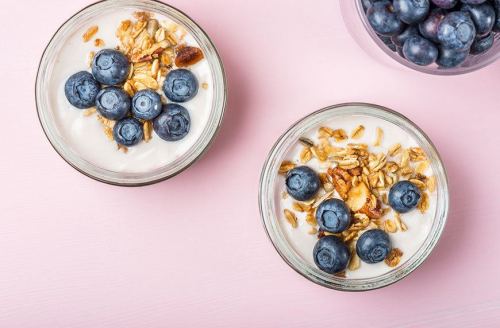Here’s a little truth bomb: The relationship between alcohol and anxiety is complex, nuanced, and murky at best. On the one hand, alcohol can help calm nerves effectively in the short term, because it acts as a sedative, decreasing inhibitions and helping you feel more at ease. But the long term impacts of alcohol consumption (or even the day after downing a couple too many drinks) tell quite a different story.
Experts in This Article
New York City-based sleep psychologist
Clinical psychologist Michele Goldman, PsyD, is a Hope for Depression Research Foundation media advisor.
Miriam Stone, LCSW, is the regional clinical director at LifeStance Health
“Alcohol increases the activity of gamma-aminobutyric acid [GABA] receptors, leading to an increase of GABA in the brain,” says clinical psychologist Joshua Tal, PhD. “GABA is an inhibitory neurotransmitter, so heightened levels caused by drinking alcohol leads to inhibition of the central nervous system, resulting in lowered anxiety, feelings of calm, and even sedation. GABA receptors are also the primary target of anti-anxiety medications such as Xanax and Valium. Plus, alcohol can increase the presence of feel-good neurotransmitters in the brain, such as dopamine and serotonin, increasing positive mood and rewarding the behavior.”
Of course, we are more than well-aware that that is only a very small piece of the puzzle—and that excessive alcohol consumption never ends well. Though booze may help with relaxation and decreasing stress and anxiety in the moment, over time it actually has the opposite effect. “We may find ourselves requiring more drinks to obtain the same relaxation effect, feeling highly anxious if we don’t have alcohol around to drink, and waking up the day after drinking with overwhelming levels of anxiety—more than we had when we first started drinking to help feel less anxious,” says psychotherapist Miriam Stone, LCSW, regional clinical director at LifeStance Health. Clearly, the relationship between alcohol and anxiety can be a (majorly) vicious cycle.
With that in mind, it’s only natural to consider cutting back on the cocktails. But how exactly does curtailing your alcohol intake impact your anxiety and mood? This is where things start looking up.
Alcohol and anxiety: How cutting back on drinking impacts your mood and mental health
1. Your sleep will improve
Though many people think alcohol helps with sleep, it actually has the opposite effect because it causes both dehydration and hormone disruption. “Alcohol prevents us from having restful sleep, so cutting back on alcohol allows our brain and body to obtain the rest that we need in order to wake up feeling rejuvenated,” says Stone.
2. You’ll have more energy
Have you ever woken up the morning after a night of drinking feeling completely depleted energy-wise? “Cutting back on alcohol allows us to have increased energy throughout our day,” says Stone. “This means that we’re better able to participate in movement, activities, and exercise, which is proven to help decrease anxiety and stress levels.”
3. Your digestion will improve
Alcohol can impact the body in many ways, including the digestive tract. “Many people who drink regularly report feelings of sluggish digestive function, and those who struggle with anxiety may also recognize how anxiety impacts gut health,” says clinical psychologist Michele Goldman, PsyD, a Hope for Depression Research Foundation media advisor. “Therefore, reducing alcohol use can reduce gut inflammation and improve digestion overall.”
4. You’ll feel less depressed
Because there is a strong relationship between anxiety and depression, increased alcohol use can also lead to worsening depression symptoms. “Alcohol is a depressant, meaning it functions as a sedative to the nervous system,” says Goldman. If you are prone to feelings of depression, lacking motivation, lethargy, heaviness within the body and decreased appetite, she says that you may want to consider reducing substances that are further depressing the body’s nervous system. “Many people struggle with both anxiety and depression; thus, if we cut back alcohol consumption and the body is less depressed, it’s possible that will also reduce anxiety symptoms overall.” More importantly, if you’re feeling depressed, schedule an appointment with a licensed mental healthcare worker, such a psychologist or social worker, immediately. If you or a loved one is struggling with substance abuse issues, you can also call 1-800-622-HELP 24 hours a day, seven days a week for assistance with treatment.
5. You’ll have an easier time focusing
According to Stone, when we drink consistently, it affects our brain’s ability to focus and concentrate on tasks at hand. This can affect our work, relationships, and lead to increased stress and anxiety. “Cutting back on alcohol consumption allows our brain to work better for us and support us in connecting and focusing on both our daily tasks and our relationships,” Stone adds.
6. You’ll be better able to self-regulate
Stone highlights that decreasing alcohol consumption allows room for other coping tools (read: breathing, meditation, journaling) to be developed and utilized, which are effective in improving anxiety in the long-term. “Rather than jumping to the quick-fix, we can empower ourselves to work on self-soothing skills and end up feeling better overall without ever feeling like we need that drink—or three—to destress. Not only is this better for our physical health, it also improves our mood, self-esteem, and true levels of confidence,” Stone says.
7. Your overall health will get a boost
Chronic alcohol use can cause increased incidences of heart disease, cancer, and other health issues, according to Dr. Tal, all of which are accompanied by increased anxiety symptoms. “Furthermore, alcohol leads to less inhibition, potentially causing engagement in dangerous and anxiety-producing situations and consequences,” he says.
Bottom Line: According to Dr. Tal, while abstaining from alcohol consumption in the short-term may require an adjustment period if you’re used to unwinding with a nightly glass of Pinot, in the long-term it leads to significantly less mood dysregulation—less highs, and thus less lows—which means a whole lot more positives for your anxiety, as well as your overall mental and physical health.
Sign Up for Our Daily Newsletter
Get all the latest in wellness, trends, food, fitness, beauty, and more delivered right to your inbox.
Got it, you've been added to our email list.











